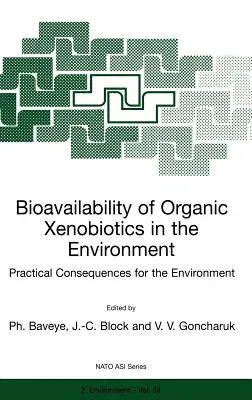Bioavailability of Organic Xenobiotics in the Environment: Practical Consequences for the Environment (1999)Hardcover - 1999, 30 September 1999

Qty
1
Turbo
Ships in 2 - 3 days
In Stock
Free Delivery
Cash on Delivery
15 Days
Free Returns
Secure Checkout

Part of Series
NATO Science Partnership Subseries: 2
Part of Series
NATO Science Series. 2, Environmental Security
Part of Series
NATO Science Partnership Sub-Series: 2:
Part of Series
NATO Science Partnership Subseries: 2 (Closed)
Print Length
504 pages
Language
English
Publisher
Springer
Date Published
30 Sep 1999
ISBN-10
0792359445
ISBN-13
9780792359449
Description
Product Details
Book Edition:
1999
Book Format:
Hardcover
Country of Origin:
US
Date Published:
30 September 1999
Dimensions:
23.39 x
15.6 x
2.87 cm
Genre:
Ecology
ISBN-10:
0792359445
ISBN-13:
9780792359449
Language:
English
Location:
Dordrecht
Pages:
504
Publisher:
Series:
Weight:
902.65 gm